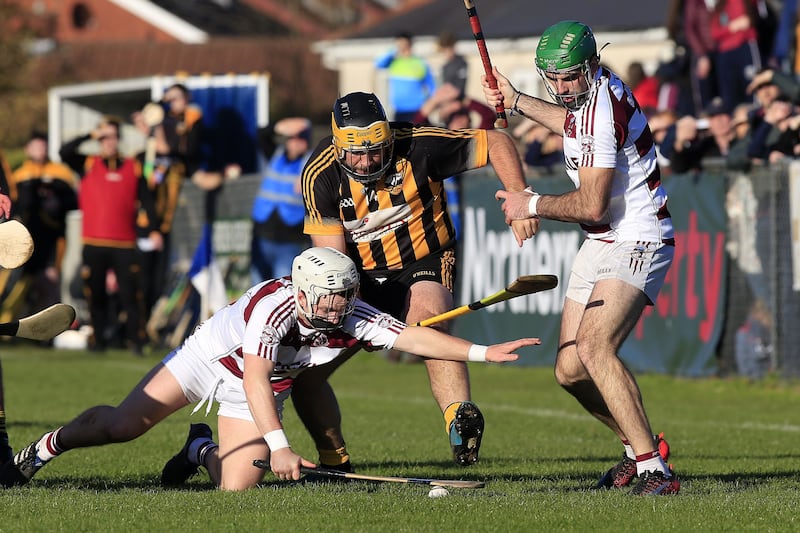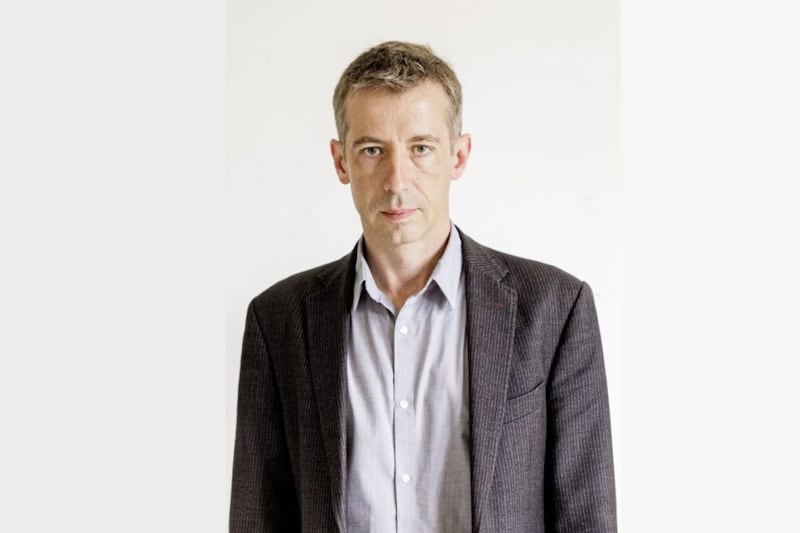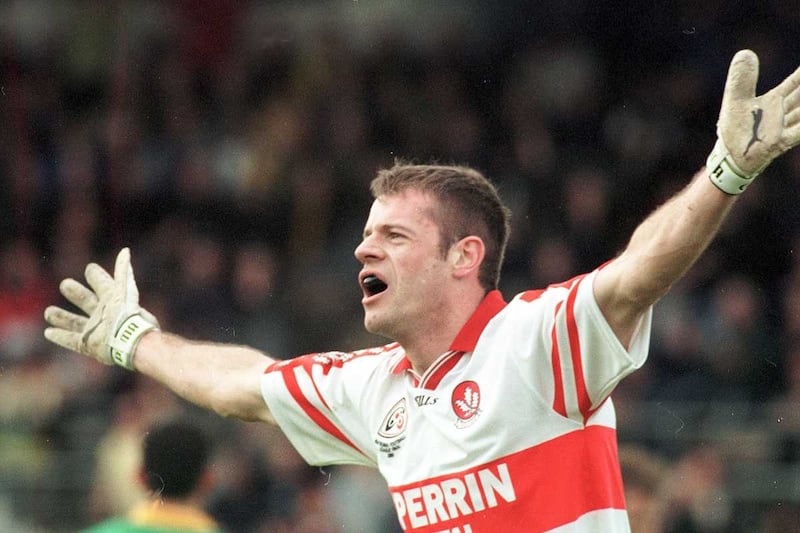THERE have been some great 'Troubles novels' written over the years: Silver's City, Cal, Field of Blood, Resurrection Man. Now, Keady-born author Michael Hughes has added his newly published Country to that esteemed list.
Country's story of a rogue IRA gang's messy implosion during a critical ceasefire crackles along at a page-turning clip. Inspired by The Iliad, Homer's classic poem about the Greco-Trojan war, the book is fuelled by impassioned colloquially styled verbal outpourings, bursts of authentically horrific violence and a palpable sense of mounting dread.
While Hughes (45) describes himself as a "total physical coward" who avoided even sports-based skirmishes while growing up in the contested borderland which forms the backdrop to his second novel, the London-based author's depiction of the war-weary soldiers on both 'sides' who have seen and done terrible things certainly reads authentically.
Indeed, as Hughes explains, Country marks his first serious attempt to grapple with the Northern Ireland conflict after years of avoidance, including an aborted attempt at a "semi-autobiographical" novel concerning an ex-pat Irishman returning to the north.
"The spark of it was the terrorist attacks in Paris and Nice," the Oxford University-educated writer tells me, during a recent visit home centred around launching his new novel at Belfast bookshop No Alibis.
"A friend was having a hard time getting to grips with how anyone could feel justified with that kind of action. I heard myself saying to her that I grew up in a time and place where people did do things of that nature.
"I was sort of talking her through it – and I walked away from that conversation a wee bit disturbed by the fact I was claiming to have some understanding of that mentality.
"That scratched away at me for a bit until I realised that what I'd been avoiding in what I was writing [about home] so far was the actual violence. I needed to do was to engage with the conflict itself."
As with The Iliad, from which Hughes borrows characters – Greek hero Achilles becomes a notorious IRA sniper, Achill, while Trojan warrior Hector is represented in seasoned SAS man Henry – themes and story structure, there is plenty of violence in Country: readers will wince their way through gory point-blank executions and graphic descriptions of the catastrophic damage an improvised explosive device inflicts upon the human body.
"Growing up it's a bit like a Western," says the author of his own Troubles experiences.
"You hear about people getting shot, but it's all a bit clean-cut if you don't actually witness it. There's no clean, 'nice' way of killing someone, whether it's by a bomb or a bullet."
While he admits that "the only book you really need to read on the conflict is Lost Lives," Hughes returned to The Iliad as his 'way into' to writing about war and the Troubles.
"I realised I needed to write about men at war and my way of dealing with that was to try and read my way into it," he explains.
The more he read the more he discovered uncanny parallels between the tail-end of the British/Irish armed conflict in 1990s Ulster and Homer's depiction of the Trojan war's twilight years.
"I'd read The Iliad for the first time after I left university. One of the things I realised when I started re-reading is that there are a number of ceasefires in it.
"Then something happens and they have to decide if that breaks the truce, or if it gives them the chance to just pack up and walk away from it.
"That seemed to fit perfectly with the dynamics of Northern Ireland in mid-90s. As I read up on the history of the republican movement it was really interesting as to how it persuaded itself that [the ceasefire] was some sort of success having really made very few tangible gains – and equally, how did the unionists and loyalists come to do business with people they previously couldn't have been in the same room as?
"How do you think yourself into that war mentality – and how do you think yourself out of it? The dynamics at play personally and politically seemed like fertile ground to me."
Taking inspiration from this Greek classic also helped lighten the load of trawling through the most unpleasant parts of our all-too-recent history.
"There's a great tradition of people using [the Iliad's] stories and elements of those stories to tell their own stories," explains Hughes, who spent a few years on the acting scene as Michael Colgan before his long-gestating debut novel The Countenance Divine was published in 2016.
"What struck me was that there's traditionally been two ways of writing about the Troubles: either you take real events or events very close to real events – like the Shankill Butchers killings in Resurrection Man – or you invent things using the basic parameters of what went on.
"For what I wanted to write, I felt a bit uneasy about exploiting the suffering of real people who still have relatives alive in a place I'm intimately connected with."
"Leaning on an existing story and an existing structure gave me permission to write in an imaginative fictional way: I'm simply setting a story that's been around for a few thousand years within the dynamics of the last days of the Northern Ireland conflict.
"It sort of let me off the hook and freed-up my imagination."
Having now firmly and memorably 'grasped the nettle' with regard to his homeland, it seems that Hughes is keen to tackle some lighter subject matter for his next writing project.
"Yeah, I think I want to do a romantic comedy!," he jokes.
"I'm not sure that's literally the case, but I really would like to step away from violence. For the last few years my life has been very domestic: I've got a young family and we're well settled down, so that's a side of life I'd like to dig into.
"But the key for me is always finding a good story to tell."
As for what that next story might concern, Hughes is not exactly sure: the Co Armagh man describes his writing process as akin to "a dog digging a hole in the garden".
"I'm thinking, 'I know there's something down here if I just keep on going'," he explains.
"I just dig and dig and dig and there'll be something that makes all that digging worthwhile – even if I have no idea yet what it is."
:: Country is out now, published by John Murray. Signed copies available at No Alibis in Belfast.







